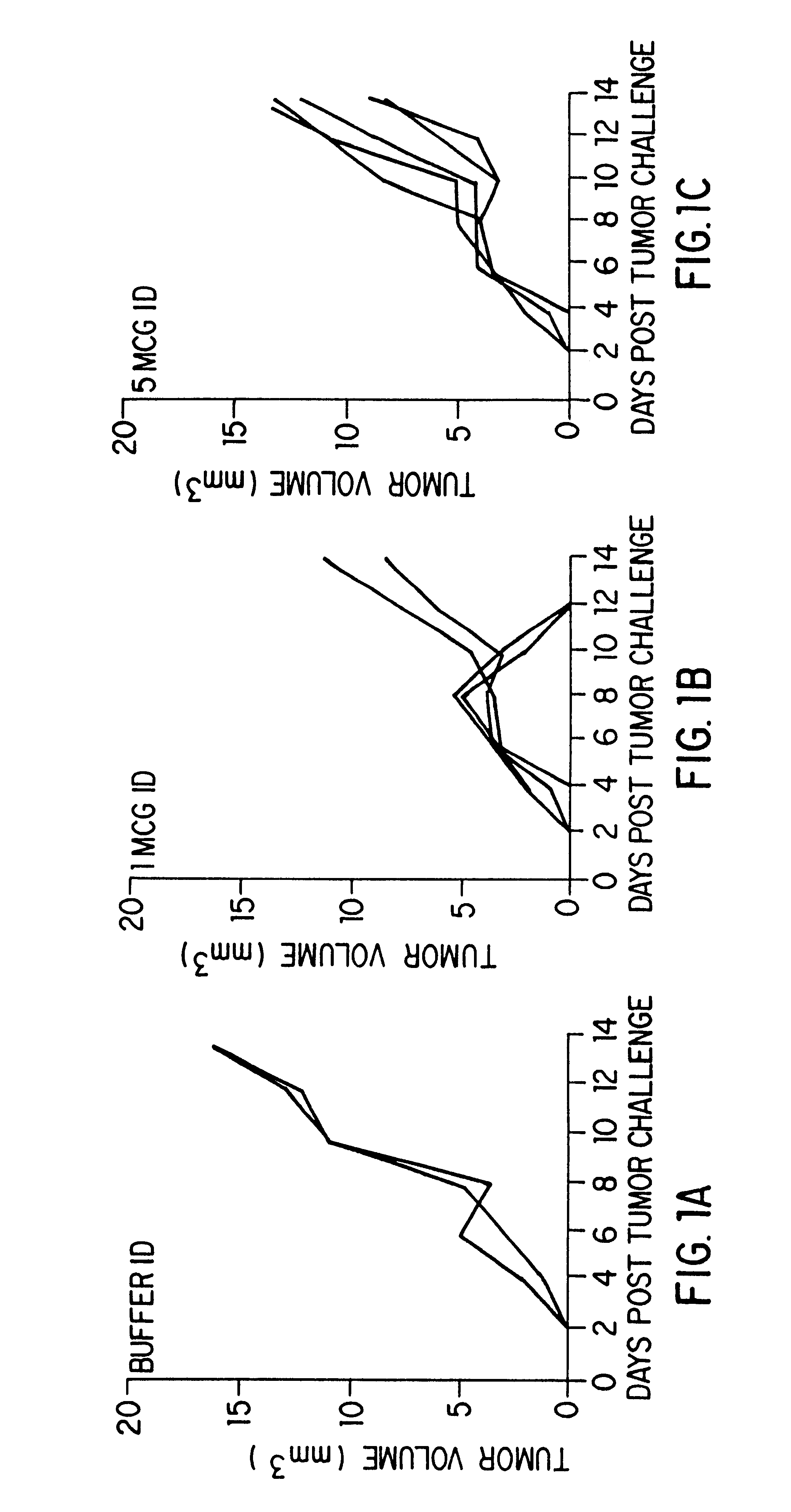Prevention of infectious diseases with gp96-peptide complexes
a peptide complex and infectious disease technology, applied in the field of infectious diseases and primary and metastatic neoplastic diseases, can solve the problems of pleomorphism, few procedures have proved effective as the sole or even adjunct form of cancer, and the abnormal size of dysplastic cells, so as to promote tumor mass regression and enhance the host's immunocompetence and activity of immune effector cells
- Summary
- Abstract
- Description
- Claims
- Application Information
AI Technical Summary
Benefits of technology
Problems solved by technology
Method used
Image
Examples
Embodiment Construction
Methods and compositions for the prevention and treatment of primary and metastatic neoplastic diseases and infectious diseases and for eliciting an immune response in a human individual, are described. The invention is based, in part, on a newly discovered dosage regimen for administration of compositions comprising complexes of hsps noncovalently bound to antigenic molecules. The present inventor has discovered that a dosage substantially equivalent to or smaller than that seen to be effective in smaller non-human animals (e.g., mice) is effective for human intradermal administration, such as described in Section 5.1, below.
"Antigenic molecule" as used herein refers to the peptides with which the hsps are endogenously associated in vivo (e.g., in infected cells or precancerous or cancerous tissue) as well as exogenous antigens / immunogens (i.e., with which the hsps are not complexed in vivo) or antigenic / immunogenic fragments and derivatives thereof.
The methods of the invention com...
PUM
| Property | Measurement | Unit |
|---|---|---|
| time | aaaaa | aaaaa |
| time | aaaaa | aaaaa |
| pH | aaaaa | aaaaa |
Abstract
Description
Claims
Application Information
 Login to View More
Login to View More - R&D
- Intellectual Property
- Life Sciences
- Materials
- Tech Scout
- Unparalleled Data Quality
- Higher Quality Content
- 60% Fewer Hallucinations
Browse by: Latest US Patents, China's latest patents, Technical Efficacy Thesaurus, Application Domain, Technology Topic, Popular Technical Reports.
© 2025 PatSnap. All rights reserved.Legal|Privacy policy|Modern Slavery Act Transparency Statement|Sitemap|About US| Contact US: help@patsnap.com

